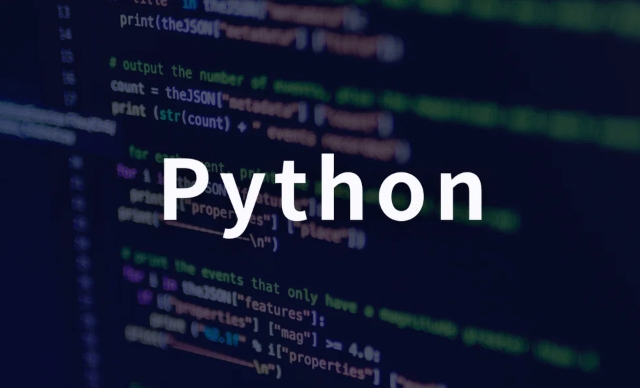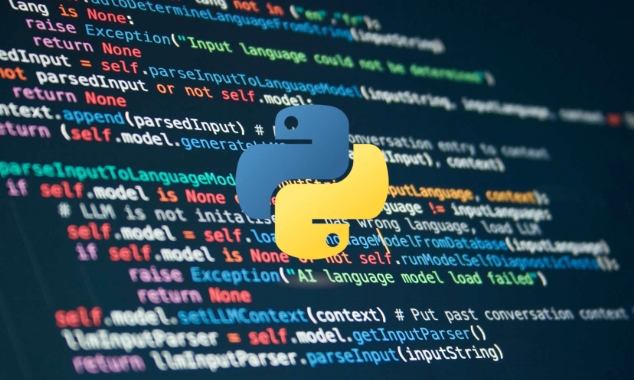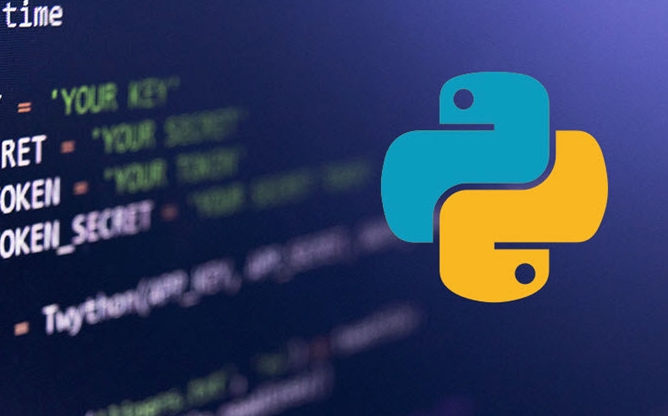How does multiple inheritance work in Python?
Jul 18, 2025 am 02:49 AMPython supports multiple inheritance, allowing subclasses to inherit methods and attributes from multiple parent classes. When multiple parent classes exist, Python determines which parent class method to call through MRO (method parsing order); MRO follows C3 linearization rules and can be viewed through .mro(). For example, the MRO of class C(A, B) is [C, A, B], calling C().do_it() will execute the method in A. If you need to run the methods A and B at the same time, you can call them explicitly. Multi-inheritance is suitable for combining different behaviors. The common pattern is to use the mixin class to achieve specific functional extensions. For example, LoggerMixin adds logging function, DatabaseSaver implements data storage, and UserManager inherits the two to reuse functions. But pay attention to name conflict issues: 1. Keep the parent class responsibilities single and does not overlap; 2. explicitly call the specified method if necessary; 3. Avoid unnecessary overwrites; 4. Understand the MRO mechanism and do not blindly rely on default behavior. Rational use of multiple inheritance can improve code flexibility and modularity, but potential conflicts need to be handled with caution.

Multiple inheritance in Python lets a class inherit from more than one parent class. This means the child class can use methods and properties from all its parent classes, which is pretty handy when you want to combine behaviors from different sources.

How Python Resolves Method Calls (MRO)
When a method is called on a class with multiple parents, Python uses something called Method Resolution Order (MRO) to figure out which version of the method to run.
The MRO follows a rule known as C3 linearization , which gives a consistent order for searching base classes. You can check this order using the .mro() method or help() on a class.

For example:
class A:
def do_it(self):
print("A")
class B:
def do_it(self):
print("B")
class C(A, B):
pass
print(C.mro())
# Output: [<class 'C'>, <class 'A'>, <class 'B'>, <class 'object'>] So when you call C().do_it() , it will run the version from class A because that's what comes first in the MRO.

If you want both versions to run, you can explicitly call them like A.do_it(self) and B.do_it(self) inside C .
Practical Use Cases for Multiple Inheritance
Multiple inheritance shines when you want to mix in reusable pieces of behavior without deep hierarchies.
One common pattern is using mixins — small classes that add specific functionality without being full-blown base classes.
Here's an example:
class LoggerMixin:
def log(self, message):
print(f"Log: {message}")
class DatabaseSaver:
def save(self, data):
print(f"Saving: {data}")
class UserManager(LoggerMixin, DatabaseSaver):
def add_user(self, user):
self.log("Adding user")
self.save(user)In this case:
-
UserManagergets logging and saving behavior - Each parent does just one thing
- The code stays clean and focused
This makes your classes easier to test and reuse.
Watch Out for Name Conflicts
If two parent classes define the same method or attribute name, things can get confusing fast.
Here are some tips to avoid problems:
- Keep your parent classes focused and non-overlapping where possible
- Use explicit calls (
ParentClass.method(self)) if you need a specific version - Avoid overriding unless necessary
- Document how conflicts should be resolved
Also, don't rely too much on the default MRO behavior without understanding it — especially when working with large frameworks or complex class trees.
Final Thoughts
Python's support for multiple inheritance is powerful but needs careful handling. Used wisely — especially with mixins — it helps build flexible and modular code.
It's not always needed, but when it fits, it can save you from messy workarounds.
That's basically how it works.
The above is the detailed content of How does multiple inheritance work in Python?. For more information, please follow other related articles on the PHP Chinese website!

Hot AI Tools

Undress AI Tool
Undress images for free

Undresser.AI Undress
AI-powered app for creating realistic nude photos

AI Clothes Remover
Online AI tool for removing clothes from photos.

Clothoff.io
AI clothes remover

Video Face Swap
Swap faces in any video effortlessly with our completely free AI face swap tool!

Hot Article

Hot Tools

Notepad++7.3.1
Easy-to-use and free code editor

SublimeText3 Chinese version
Chinese version, very easy to use

Zend Studio 13.0.1
Powerful PHP integrated development environment

Dreamweaver CS6
Visual web development tools

SublimeText3 Mac version
God-level code editing software (SublimeText3)

Hot Topics
 How to use PHP combined with AI to achieve text error correction PHP syntax detection and optimization
Jul 25, 2025 pm 08:57 PM
How to use PHP combined with AI to achieve text error correction PHP syntax detection and optimization
Jul 25, 2025 pm 08:57 PM
To realize text error correction and syntax optimization with AI, you need to follow the following steps: 1. Select a suitable AI model or API, such as Baidu, Tencent API or open source NLP library; 2. Call the API through PHP's curl or Guzzle and process the return results; 3. Display error correction information in the application and allow users to choose whether to adopt it; 4. Use php-l and PHP_CodeSniffer for syntax detection and code optimization; 5. Continuously collect feedback and update the model or rules to improve the effect. When choosing AIAPI, focus on evaluating accuracy, response speed, price and support for PHP. Code optimization should follow PSR specifications, use cache reasonably, avoid circular queries, review code regularly, and use X
 PHP calls AI intelligent voice assistant PHP voice interaction system construction
Jul 25, 2025 pm 08:45 PM
PHP calls AI intelligent voice assistant PHP voice interaction system construction
Jul 25, 2025 pm 08:45 PM
User voice input is captured and sent to the PHP backend through the MediaRecorder API of the front-end JavaScript; 2. PHP saves the audio as a temporary file and calls STTAPI (such as Google or Baidu voice recognition) to convert it into text; 3. PHP sends the text to an AI service (such as OpenAIGPT) to obtain intelligent reply; 4. PHP then calls TTSAPI (such as Baidu or Google voice synthesis) to convert the reply to a voice file; 5. PHP streams the voice file back to the front-end to play, completing interaction. The entire process is dominated by PHP to ensure seamless connection between all links.
 How to develop AI intelligent form system with PHP PHP intelligent form design and analysis
Jul 25, 2025 pm 05:54 PM
How to develop AI intelligent form system with PHP PHP intelligent form design and analysis
Jul 25, 2025 pm 05:54 PM
When choosing a suitable PHP framework, you need to consider comprehensively according to project needs: Laravel is suitable for rapid development and provides EloquentORM and Blade template engines, which are convenient for database operation and dynamic form rendering; Symfony is more flexible and suitable for complex systems; CodeIgniter is lightweight and suitable for simple applications with high performance requirements. 2. To ensure the accuracy of AI models, we need to start with high-quality data training, reasonable selection of evaluation indicators (such as accuracy, recall, F1 value), regular performance evaluation and model tuning, and ensure code quality through unit testing and integration testing, while continuously monitoring the input data to prevent data drift. 3. Many measures are required to protect user privacy: encrypt and store sensitive data (such as AES
 python seaborn jointplot example
Jul 26, 2025 am 08:11 AM
python seaborn jointplot example
Jul 26, 2025 am 08:11 AM
Use Seaborn's jointplot to quickly visualize the relationship and distribution between two variables; 2. The basic scatter plot is implemented by sns.jointplot(data=tips,x="total_bill",y="tip",kind="scatter"), the center is a scatter plot, and the histogram is displayed on the upper and lower and right sides; 3. Add regression lines and density information to a kind="reg", and combine marginal_kws to set the edge plot style; 4. When the data volume is large, it is recommended to use "hex"
 How to use PHP combined with AI to analyze video content PHP intelligent video tag generation
Jul 25, 2025 pm 06:15 PM
How to use PHP combined with AI to analyze video content PHP intelligent video tag generation
Jul 25, 2025 pm 06:15 PM
The core idea of PHP combining AI for video content analysis is to let PHP serve as the backend "glue", first upload video to cloud storage, and then call AI services (such as Google CloudVideoAI, etc.) for asynchronous analysis; 2. PHP parses the JSON results, extract people, objects, scenes, voice and other information to generate intelligent tags and store them in the database; 3. The advantage is to use PHP's mature web ecosystem to quickly integrate AI capabilities, which is suitable for projects with existing PHP systems to efficiently implement; 4. Common challenges include large file processing (directly transmitted to cloud storage with pre-signed URLs), asynchronous tasks (introducing message queues), cost control (on-demand analysis, budget monitoring) and result optimization (label standardization); 5. Smart tags significantly improve visual
 How to develop AI-based text summary with PHP Quick Refining Technology
Jul 25, 2025 pm 05:57 PM
How to develop AI-based text summary with PHP Quick Refining Technology
Jul 25, 2025 pm 05:57 PM
The core of PHP's development of AI text summary is to call external AI service APIs (such as OpenAI, HuggingFace) as a coordinator to realize text preprocessing, API requests, response analysis and result display; 2. The limitation is that the computing performance is weak and the AI ecosystem is weak. The response strategy is to leverage APIs, service decoupling and asynchronous processing; 3. Model selection needs to weigh summary quality, cost, delay, concurrency, data privacy, and abstract models such as GPT or BART/T5 are recommended; 4. Performance optimization includes cache, asynchronous queues, batch processing and nearby area selection. Error processing needs to cover current limit retry, network timeout, key security, input verification and logging to ensure the stable and efficient operation of the system.
 PHP integrated AI emotional computing technology PHP user feedback intelligent analysis
Jul 25, 2025 pm 06:54 PM
PHP integrated AI emotional computing technology PHP user feedback intelligent analysis
Jul 25, 2025 pm 06:54 PM
To integrate AI sentiment computing technology into PHP applications, the core is to use cloud services AIAPI (such as Google, AWS, and Azure) for sentiment analysis, send text through HTTP requests and parse returned JSON results, and store emotional data into the database, thereby realizing automated processing and data insights of user feedback. The specific steps include: 1. Select a suitable AI sentiment analysis API, considering accuracy, cost, language support and integration complexity; 2. Use Guzzle or curl to send requests, store sentiment scores, labels, and intensity information; 3. Build a visual dashboard to support priority sorting, trend analysis, product iteration direction and user segmentation; 4. Respond to technical challenges, such as API call restrictions and numbers
 python list to string conversion example
Jul 26, 2025 am 08:00 AM
python list to string conversion example
Jul 26, 2025 am 08:00 AM
String lists can be merged with join() method, such as ''.join(words) to get "HelloworldfromPython"; 2. Number lists must be converted to strings with map(str, numbers) or [str(x)forxinnumbers] before joining; 3. Any type list can be directly converted to strings with brackets and quotes, suitable for debugging; 4. Custom formats can be implemented by generator expressions combined with join(), such as '|'.join(f"[{item}]"foriteminitems) output"[a]|[






